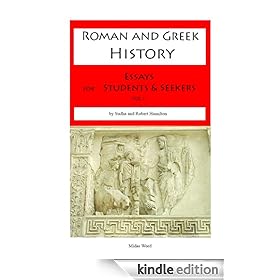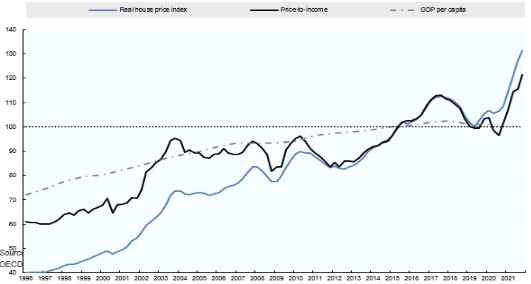by Robert Hamilton
In discussing the similarities, between the thoughts of Cato the Elder and Gaius Marius, I see in Plutarch’s histories[1] of both men many examples to consider. Both are recorded, as expressing strong views about the importance of right action over mere words[2], with Cato repeatedly questioning and challenging excessive or indolent behaviour in those around him during his public lifetime; and exemplifying its opposite in his own actions[3]. Both Marius and Cato exhibited a belief in the virtue of the abstemious and resolute Roman[4], with Marius portraying these qualities throughout his military campaigns[5]; to the welcome acclaim of his serving men.
Marius and Cato the Elder both, turned their disadvantage of birth, being born into lesser families away from the centre of Roman noble life, into a motivating force – each becoming the novus homo[6] of their time. Marius in his consulship acceptance speech, as recorded by Sallust[7], robustly compares his own first-hand experience of military leadership with that of Q. Caecilius Metellus (Numidicus), the consul from the patrician family whom he replaces. The crux of the matter being, that is it better to have experience and glory in your own lifetime or in your ancestors?
Continued in Roman and Greek History by Robert Hamilton
©Robert Hamilton

[1] Plutarch, Makers of Rome (trans. I. Scott-Kilvert) Penguin Books, London, 1965, Plutarch, Life of Cato. Plutarch, Fall of the Roman Republic (trans. R. Warner) Penguin Books, London, Rev Edition 2005, Plutarch, Life of Marius.
[2] John Kennedy, Sr VFL Coach 1975 Grand Final “At least DO SOMETHING! DO! Don’t think, don’t hope, do! At least you can come off and say ‘I did this, I shepherded, I played on. At least I did something.'” – A famous modern example of an exhortation to right action over mere words or thoughts.
[3] Plutarch, Life of Cato 6.
[4] Appian, Punic Wars 69 (Loeb trans.)
[5] Plutarch, Life of Marius 7.
[6] Wiseman.T.P, New men in the Roman Senate 139 BC – AD 14, Oxford University Press. P-108.
[7] Sallust, The Jugurthine War 85 (“The Speech of Marius”).(Penguin trans.)
[8] Harris.W.V, War and Imperialism in Republican Rome 327-70BC, Clarendon Press, Oxford, p – 17.
[9] Plutarch, Life of Cato 11.
[10] Plutarch, Life of Marius 4.
[11] Greenidge. AH.J, Roman Public Life, Macmillan & Co, London, 1901, p- 246.
[12] Plutarch, Life of Cato 19.
[13] Plutarch, Life of Marius 5.
[14] Taylor, Lily, Ross, Party Politics In the Age of Caesar, University of California Press,Berkeley, CA, 1966. P – 11.
| [15] The American Heritage® Dictionary of the English Language, Fourth Edition copyright by Houghton Mifflin Company. Updated in 2009. la·coni·cal·ly adv.Word History: The study of the classics allows one to understand the history of the term laconic, which comes to us via Latin from Greek Laknikos. The English word is first recorded in 1583 with the sense “of or relating to Laconia or its inhabitants.” Laknikos is derived from Lakn, “a Laconian, a person from Lacedaemon,” the name for the region of Greece of which Sparta was the capital. The Spartans, noted for being warlike and disciplined, were also known for the brevity of their speech, and it is this quality that English writers still denote by the use of the adjective laconic, which is first found in this sense in 1589. |
[16] D. Earl, The Moral and Political Tradition of Rome, London, 1967, p – 18.
[17] Plutarch, Life of Cato 12.
[18] Plutarch, Life of Marius 2.
[19] Harris.W.V, War and Imperialism in Republican Rome 327-70BC, p – 17.
[20] Plutarch, Life of Cato 26.
[21] Plutarch, Life of Marius 11.
[22] Lowenstein, Karl, The Governance of Rome, The Hague, 1973, Chpt 3, p – 59.
[23] Harris.W.V, War and Imperialism in Republican Rome 327-70BC, p – 10-11.
[24] Sallust, The Jugurthine War 85.
[25] Lintott, Andrew, The Constitution of the Roman Republic, Clarendon Press, Oxford, 1999. The Senate p-65.
[26] D. Earl, The Moral and Political Tradition of Rome, p 13.- The Roman nobility was always of great vitality and ever in search of talent’:
[27] Plutarch, Life of Marius 9.
[28] Harris.W.V, War and Imperialism in Republican Rome 327-70BC, Oxford, p – 13.
[29] Plutarch, Life of Marius 13.
[30] Plutarch, Life of Marius 29.
[31] Sallust, The Jugurthine War 85.
[32] Harris.W.V, War and Imperialism in Republican Rome 327-70BC, Oxford, p – 27.
[33] Harris.W.V, War and Imperialism in Republican Rome 327-70BC, Oxford, p – 31.
[34] The Scipionic Epitaphs (from the translation of E.H. Warmington, Remains of Old
Latin, Vol. IV, Loeb Classical Library) – “Lucius Cornelius Scipio, son of Lucius,
grandson of Publius, quaestor, tribune of soldiers. Died at the age of thirty-three years.
His father vanquished King Antiochus.”
[35] Wiseman.T.P, New men in the Roman Senate 139 BC – AD 14, p -111-112.
[36] Lowenstein, Karl, The Governance of Rome, p – 83.












Average Rating